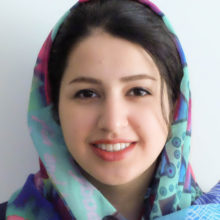PhD student, Stanford University
Email
Abstract
Hive: Decentralized Open Design Through Network Rotation
A core assumption behind online, large-scale design (e.g., OpenIDEO) is that people draw on each others’ ideas and incorporate a diverse range of viewpoints. However, organizational behavior research has established that mere exposure to others’ ideas is insufficient: influence requires working closely with the people who brought those ideas to the table. We present Hive: a system that organizes a collective into small teams, then intermixes viewpoints by gradually rotating team membership. Hive must balance two competing forces: (1) networks are better at connecting diverse perspectives when network efficiency is high, but (2) moving people diminishes tie strength within teams. Hive balances these two needs through network rotation: an optimization algorithm that computes who should move where, and when. A controlled study compared network rotation to static teams and to rotations not constrained by tie-strength, finding that network rotation produced higher-rated proposals. Hive has been deployed by Mozilla for a real-world open design drive to improve Firefox accessibility.
Bio
Niloufar Salehi is a PhD student in computer science at Stanford and a member of the Human-Computer Interaction group where she is advised by Prof. Michael Bernstein. Her research focuses on designing systems for collaboration, cooperation, and collective action by large, diverse groups online. Her work has been published and received awards in premier venues in human-computer interaction including CHI and CSCW. She has been awarded a Stanford Graduate Fellowship and a Stanford School of Engineering Fellowship. She is interested in the design of social computing systems that support collaboration and cooperation at scale. Her research approach is based heavily on social psychology and organizational behavior on the conditions for effective collaboration and cooperation. She uses this theoretical framing to understand social behavior and design technical solutions. She has designed systems that facilitate collaboration towards complex, interdependent, and innovative goals. For instance, her research has supported people with disabilities, designers, and programmers to work towards a more accessible internet through open, decentralized design. She has also worked in collaboration with Amazon Mechanical Turk workers to design Dynamo, as system that supports collective action by workers. Workers used Dynamo to collaboratively author a set of guidelines for ethical research on AMT and to host a letter writing campaign with the goal of humanizing workers in the public imagination. This work has appeared in The Guardian and The Chronicle of Higher Education among others.
